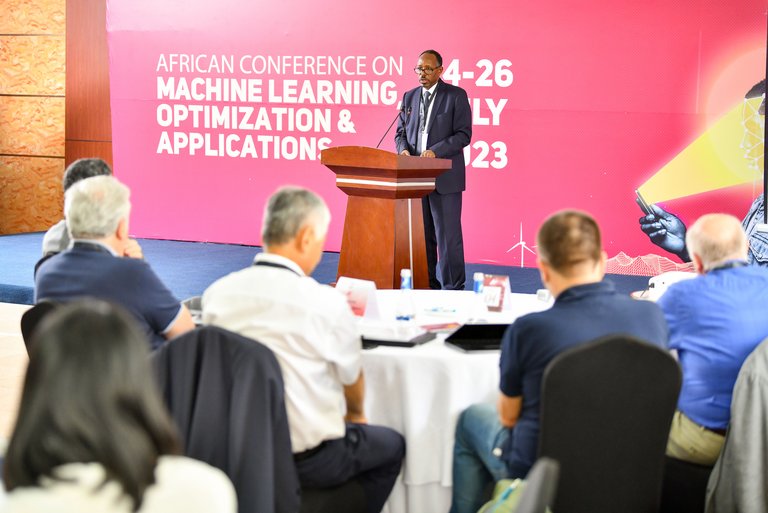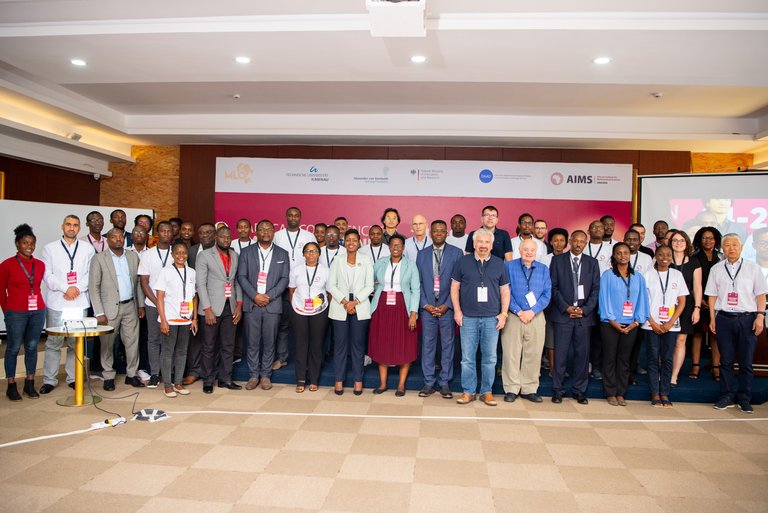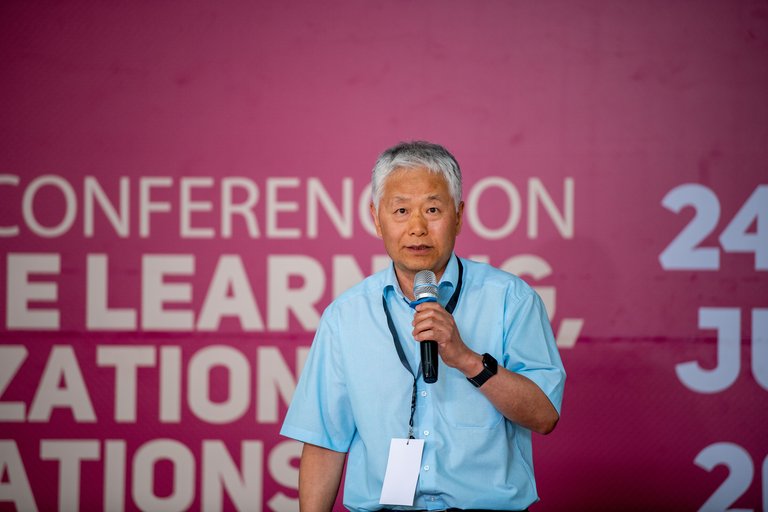Around 85 scientists, industry experts and ministry representatives from the USA, Israel, Poland, Mexico, Germany and the African continent met in Kigali at the end of July to exchange views on future trends and advanced applications of machine learning and mathematical optimization methods at the Machine Learning, Optimization and Applications (MLOA) conference. With the conference, they laid the foundation for future cross-national collaboration.

The aim of the conference, chaired by Dr. rer. nat. habil. Abebe Geletu W. Selassie, holder of the Research Chair of Mathematics and its Application at the African Institute for Mathematical Sciences (AIMS) in Rwanda, and Prof. Dr.-Ing. habil. Pu Li, head of the Process Optimization Group at TU Ilmenau, was to expand research capacities and promote cross-border knowledge transfer in the optimization of processes and systems for sustainable resource use.
Innovative solutions for Africa in view
In his welcome address, AIMS President Prof. Sam Yala emphasized the importance of machine learning for a wide range of applications beyond the boundaries of research. According to Prof. Sam Yala, the conference offers the ideal platform to promote the next generation of African researchers. Among them, he said, are an increasing number of women, as the scientific director of the AIMS Global Network, Prof. Wilfred Ndifon, pointed out in his welcome address. Rwanda's Minister of Information and Communication Technology (ICT), Paula Ingabire, underlined Rwanda's innovation and pioneering role in the technology sector on the African continent and highlighted the idea of pan-Africanism. Research results in Rwanda, she said, could also serve as a model for other African countries. "The MLOA conference will bring together the best from around the world and Africa to address innovative solutions for Africa," Prof. Abebe Geletu summarized in his welcome address.
Machine learning for better water distribution and more biodiversity
Four plenary lectures by renowned scientists covered different aspects of machine learning and optimization: Prof. Lorenz T. Biegler from Carnegie Mellon University in Pittsburgh discussed the application of nonlinear optimization with data-driven models. Prof. Boris Mordukhovic from Wayne State University in Detroit showed how variational analysis and numerical optimization can be applied in machine learning. How machine learning can be used to optimize water distribution systems was presented by Prof. Avi Ostfeld of the Technion, Haifa in Israel. Conference participants learned about the diverse applications of artificial intelligence (AI) and machine learning in biodiversity research in a concluding presentation by Prof. Patrick Mäder, head of Data-intensive Systems and Visualization at TU Ilmenau.
The second conference day was dedicated to the submitted research papers of the participating scientists. Among other things, they addressed how machine learning and mathematical optimization methods can be applied to improve cattle farming, model prostheses, clean contaminated water systems, detect tooth decay, or store geothermal energy. Conference chair Abebe Geletu encouraged participants to continue to exchange ideas closely on these and other topics.
On the third day of the conference, PhD students from the AIMS Research Center presented short talks on their research on how machine learning can be used to improve satellite-based rainfall estimates for African rainfed agriculture, and how neural machine translation (NMT) theory can be used to automatically translate so-called low resource languages - languages from countries where comparably little content is available online, such as Swaheli or Zulu.Conference participants also visited an innovation hub for startups and the Integrated Polytechnic Regional College (IPRC), where they gained insights into student projects on diabetes prevention and oxygen delivery to patients.
A moving part of the conference was also the visit to the memorial site of the 1994 genocide, accompanied by a survivor.
"Special atmosphere of cooperation"
On the workshop day after the conference, the DAAD fellows at AIMS Rwanda presented the research they had developed during their first year of funding. Topics such as intelligent control engineering for solar-powered food storage automation, distributed control of multiple microgrids, intelligent control of water distribution systems, and the development of new simulation systems for lithium-ion batteries were presented.
This first African Conference on Machine Learning, Optimization and their Applications in Rwanda was a great success, creating a special atmosphere of collaboration, creativity and enthusiasm, and laying the foundation for future cross-country cooperation
said Prof. Pu Li.
The conference was sponsored by the Alexander von Humboldt Foundation, the German Academic Exchange Service (DAAD) and the German Federal Ministry of Education and Research (BMBF) as part of a university cooperation between Ilmenau University of Technology and the African Institute for Mathematical Sciences (AIMS) in Rwanda.
More information: https://www.aims-tuilm-syosu.com/event/conference2023/

Contact
Prof. Pu Li
Head of the Process Optimization Group


